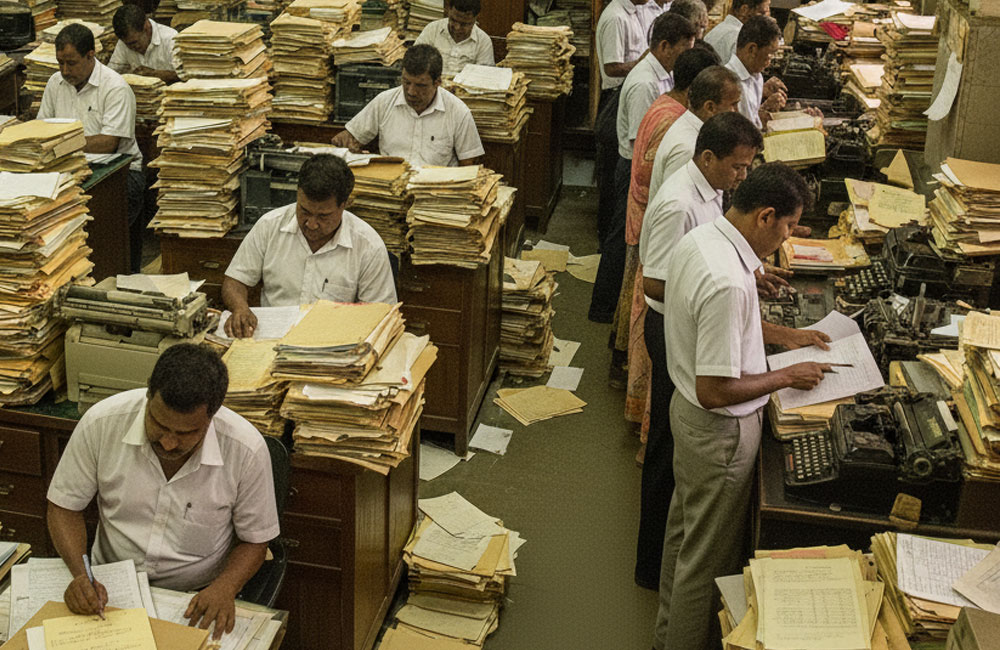Sri Lanka’s long-standing struggle with an oversized, top-heavy and bottom-heavy public sector moved back into focus this week when an interim report proposing a structured salary framework and improved professionalism in the public service was presented to the Ministerial Consultative Committee on Public Administration.
The report, tabled by subcommittee chairman and MP Chandana Sooriyarachchi, outlines initial steps toward modernising state institutions that have suffered from decades of politicisation, inconsistent recruitment, and chronic inefficiencies.
Sri Lanka currently maintains one of the largest public sectors in Asia relative to population, employing more than 1.52 million workersroughly one in every six employed persons in the country.
According to Treasury data, public-sector salaries and pensions absorb more than 54% of annual government revenue, leaving limited fiscal space for development spending. Economists have repeatedly warned that the structure of the public service is highly imbalanced: it is overloaded with clerical and minor staff while critically short of skilled professionals, technical experts, and policy-level officers.
Against this backdrop, the interim report proposes establishing a formal institution to design a structured salary system, harmonise pay scales, and introduce merit-based career progression. The goal, officials say, is to reduce disparities across ministries, curb politically driven appointments, and create a more professional service aligned with national development needs.
The Committee meeting, chaired by Minister A.H.M.H. Abeyrathna, also examined growing administrative issues at Divisional Secretariats and Local Government bodies. MPs highlighted severe delays in service delivery, understaffing of critical units, and the absence of a standardised performance monitoring mechanism.
Committee members instructed ministry officials to address these issues urgently, particularly at offices where citizens face long queues for essential documents, land transactions, and welfare services.
Another contentious issue discussed was the pension entitlements for public servants who later become Members of Parliament. Current rules disqualify an MP from receiving a parliamentary pension while also complicating claims for pensions from previous state-sector positions if they served more than ten years. The committee acknowledged the need to resolve this anomaly and agreed to pursue further deliberations.
Confusion within the public service over the Public Service Commission’s recent alterations to efficiency bar examinations, recruitment criteria, and promotion procedures was also raised. Ministry officials conceded that the changes had created disparities across departments and pledged to reassess the policy shift.
Analysts argue that modernising the public sector will require more than harmonising salaries. Solutions include a comprehensive manpower audit, eliminating redundant positions, digitalising frontline services, retraining underutilised staff, and depoliticising appointments. Without structural reform, Sri Lanka’s bloated public sector is expected to continue consuming scarce revenue while delivering inadequate results.
With fiscal pressures mounting and the IMF emphasising public-sector rationalisation under its ongoing programme, the government now faces a narrow window to turn recommendations into action. Whether the proposed reforms can break decades of institutional inertia remains the central question.

Leave your comments
Login to post a comment
Post comment as a guest